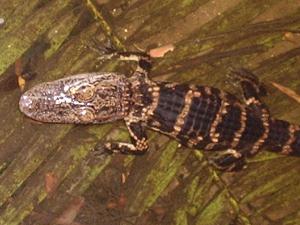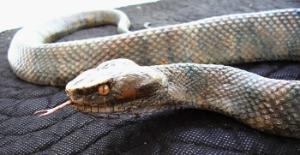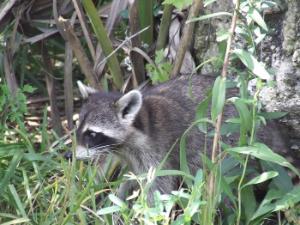Sighting of injured or potentially dangerous wild animals (e.g., opossums, skunks) on campus should be reported to the Environmental Health & Safety (EH&S) Department at 321-674-7715/8881 and Grounds Department at 321-674-8038. Animal Control services will be contacted to humanely trap the animal.
Feral cats are any cats that have no apparent owner or identification and are apparently wild, untamed, and unmanageable and should not be approached or handled. These cats can be a public health and safety concern due to rabies, toxoplasmosis,or other zoonotic diseases. If you notice any wild cats or cat colonies that have become a nuisance, please call EH&S and Grounds Department.
Do not feed or approach wild animals on campus.
For removal of animal carcasses found on university property, contact the Grounds Department at 321-674-8038. This department will remove dead animals.
Stray Animals
Please do not harbor, feed, or keep stray animals on the campus of Florida Tech. Notify EH&S and the Grounds Department to humanely remove the animal or animals.
Rabies
Rabies is a viral disease that causes acute encephalitis in warm-blooded animals. Rabies in raccoons and other wildlife is considered endemic throughout the state of Florida. All wildlife contact should be avoided, particularly raccoons. Animals exhibiting signs of sickness and aggressive behavior should be reported to EH&S at 321-674-7715/8881. The owner of a dog or cat on campus shall have such animal vaccinated against rabies with a vaccine approved by the United States Department of Agriculture by three (3) months of age, but no later than four (4) months of age. The duration of the vaccination shall be according to the approved label accompanying the vaccine as it applies to the particular species or age of the animal.
Feeding Animals
Many wild animals are cute and cuddly. They approach you and you feed them. They keep coming back and you keep feeding them. As they grow older they lose the ability to feed naturally because you have been feeding them for a long time. When you either go away for semester breaks, or leave the university entirely, they are unable to fend for themselves and many become weak and diseased. Often they will raid garbage cans or enter buildings in search of food. At this point they become aggressive and dangerous.



This is Florida and there are many animals that are cute as babies but become dangerous as adults. Alligators, raccoons, and wild cats to name a few. Do not feed them or approach them. If you see one acting strangely, notify the Department of Security and we will take the appropriate measures to ensure your safety.
Remember, wild animals are not household pets.

 Give to Florida Tech
Give to Florida Tech 